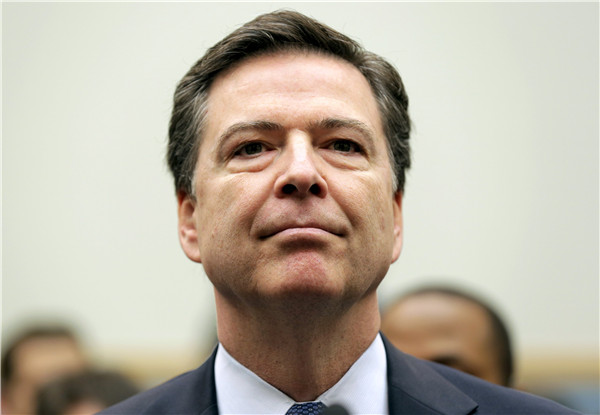US succeeds in cracking Apple's iPhone, drops legal action
(Agencies) Updated: 2016-03-29 09:32
 |
|
FBI Director James Comey arrives for a House Judiciary hearing on "The Encryption Tightrope: Balancing Americans' Security and Privacy" on Capitol Hill in Washington March 1, 2016. [Photo/Agencies] |
SAN FRANCISCO - The US Justice Department said on Monday it had succeeded in unlocking an encrypted iPhone used by one of the San Bernardino shooters and dropped its legal case against Apple, ending a high-stakes legal battle but leaving the broader struggle over encryption unresolved.
The abrupt end to a confrontation that had transfixed the tech industry was a victory for Apple, which vehemently opposed a court order obtained by the Justice Department that would have required it to write new software to get into the iPhone.
But the larger fight over law enforcement access to encrypted information is by no means over. The technology industry is adamant that anything that helps authorities bypass the security features of tech products will undermine security for everyone.
Government officials are equally insistent that all manner of criminal investigations will be crippled without access to phone data.
At issue in the Apple case was a county-owned iPhone used by Rizwan Farook, one of the husband-and-wife shooters in the December rampage in San Bernardino, California, in which 14 people were killed and 22 wounded. The couple died in a shootout with police after the attack.
After saying for weeks in court filings and congressional testimony that Apple possessed the "exclusive technical means" to unlock Farook's phone, the Justice Department unexpectedly announced on the eve of a court hearing last week that an unidentified outside party had presented it with a technique that might open the phone without help from Apple.
In a two-page court filing on Monday, the Justice Department said the government had "successfully accessed the data stored on Farook's iPhone and therefore no longer requires the assistance from Apple." It asked a federal magistrate in Riverside, California, to withdraw the order compelling Apple to assist.
Apple had argued that the government request and resulting court order were a massive overreach that would give courts unlimited authority to force private companies to work as their agents. It argued that Congress had specifically declined to give the government such powers when it comes to electronic surveillance and data collection.
Tech industry leaders including Google, Facebook and Microsoft and more than two dozen other companies filed legal briefs supporting Apple. The Justice Department received support from law enforcement groups and six relatives of San Bernardino victims.
Apple had no immediate comment on Monday.






